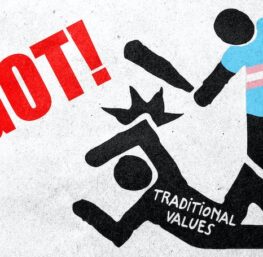Townhall.com | Feb. 8, 2008
“(Don’t let) the perfect (be) the enemy of the good.” — Voltaire
I keep hearing conservatives say that if John McCain is the nominee — and barring a miracle, he will be at this point — that they’re going to sit out the election or even vote for the Democratic nominee because of “conservative principles.”
As one conservative — and not as a “John McCain conservative,” but as a “I supported Duncan Hunter and Fred Thompson, oppose amnesty and abortion, fought to get Samuel Alito instead of Harriet Miers, believe in small government, term limits, tax cuts, and balancing the budget” conservative — to another, let me tell you that I very respectfully, but also very strongly disagree with that definition of “conservative principles.”
There is NOTHING conservative about working with the Democratic nominee against most of your fellow conservatives in order to grow government, socialize medicine, lose the war in Iraq, tilt the Supreme Court to the Left, and make Roe v. Wade the permanent law of the land. If you are conservative and vote for the Democratic nominee or even just refuse to vote for McCain, who is by any and every objective standard, considerably more conservative than either of them, let me tell you what you are NOT doing,
* You are NOT doing the logical thing. When faced with a choice between a moderate who holds some conservative positions and some non-conservative positions and a liberal who holds no conservative positions, the logical decision is to take the moderate. After all, half a loaf is better than none.
* You are NOT helping conservatism or your fellow conservatives. To the contrary, you are helping liberals defeat conservative ideas. Isn’t that what conservatives are saying that they’re furious at McCain over? Well, who’s less of a conservative: John McCain, who, if he were in the White House, would help conservatives win some battles and would help liberals win others or the conservatives who want to help a Democrat get into the office who will go against conservative ideas every time?
* You are NOT looking out for the best interests of the country. If you believe winning in Iraq is better than losing, if you believe balancing the budget is better than higher deficit spending, if you believe that having a Supreme Court that is tilted to the right is better than having a Supreme Court tilted to the left, and if you believe that Roe v. Wade is leading to the immoral murder of millions of children — and the overwhelming majority of people reading this column certainly believe all those things — then you are certainly not putting the good of the country first if you oppose John McCain in November.
Some might argue that having Hillary Clinton in office would be better for the country and conservatism because she would screw things up so badly that it would actually help conservatives in the long run. But, if people haven’t seen through Hillary Clinton after 16 years in the public eye, what makes you think another 4-8 years in the White House would do it? How many Americans saw through FDR? Even as his government policies extended the depression for years after it should have ended, he was voted back into office. Yes, he was a capable war President, but he also did more damage to this country domestically than any other President in history, short-term and long-term, and he’s still considered by many people to be one of our greatest Presidents.
But, we don’t have to go all the way back to Roosevelt: just think back to 2006. What did we hear then? “We should stay home and teach the Republicans a lesson. They’ll take a big beating and it’ll be great for conservatism.” How did that turn out? From where I am sitting, we have a lot less Republicans in Congress, more squabbling than ever, and we’re going to have Republican nominee John McCain. Why? Because sometimes a loss leads to better things, but in politics, as often as not, losing just begets more losing and it can sometimes take a very, very long time for movements to learn from its mistakes. Think back to Roosevelt, whose victories started a 40 year-long dominant cycle for the Democrats and that party’s shift to the left in 1972 that started a long slow slide for them that may have finally ended in 2006.
. . . more



